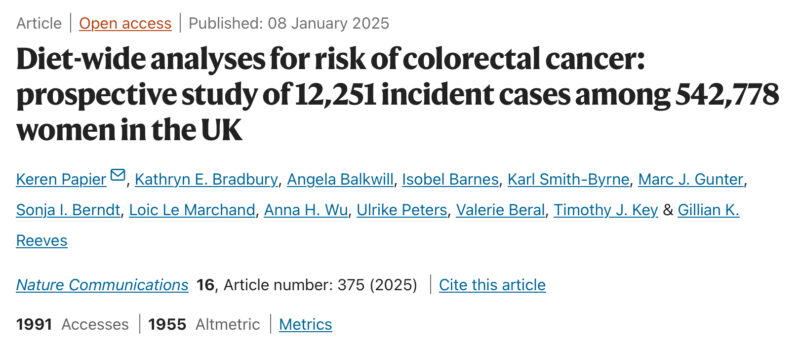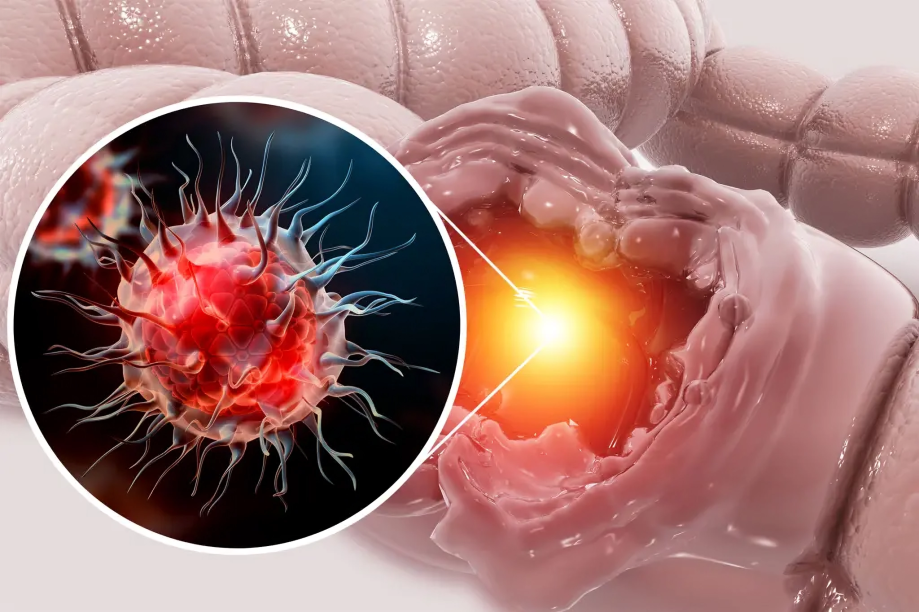A large UK study has provided further evidence that incorporating more calcium into the diet—equivalent to a glass of milk a day—can significantly reduce the risk of bowel cancer.
Conducted by researchers from Oxford University and Cancer Research UK, the study analyzed the diets of over half a million women over 16 years.
It found that foods rich in calcium, such as dairy products, dark leafy greens, and calcium-fortified non-dairy milks, play a protective role in reducing the risk of this common and often deadly cancer.
The study highlights that consuming an extra 300mg of calcium daily—roughly the amount in a large glass of milk—can lower bowel cancer risk by 17%.
This is one of the largest studies on diet and bowel cancer, with more than 12,000 participants developing the disease over the study period.
Lead researcher Keren Papier from Oxford University emphasized that this finding underscores the potential protective effect of calcium, particularly from dairy products, in lowering the risk of bowel cancer.

While calcium-rich foods showed a clear protective effect, the study also reaffirmed the dangers of excessive alcohol and processed meat consumption.
Drinking an additional large glass of wine daily, or 0.7oz (20g) of alcohol, was found to increase the risk of bowel cancer by 15%. Similarly, eating just 1oz more red and processed meat per day—equivalent to a slice of ham—raised the risk by 8%.
These findings align with previous research linking processed meats and alcohol to higher cancer risks.
In terms of diet, other foods like whole grains, fruits, and vegetables were shown to lower bowel cancer risk, but the effect was much smaller compared to the calcium-rich foods.
Calcium’s role in reducing cancer risk may be due to its ability to bind to bile acids and free fatty acids in the colon, reducing their potentially carcinogenic effects.
Bowel cancer is the fourth most common cancer in the UK, with around 44,000 new cases diagnosed each year. While most cases occur in older individuals, there has been a concerning rise in cases among younger adults under 50.
Experts speculate that poor diet, obesity, and lifestyle factors may contribute to this upward trend. Symptoms of bowel cancer include changes in bowel habits, unexplained weight loss, blood in stool, and persistent fatigue.
Anyone experiencing these symptoms is advised to consult a doctor promptly.
Though this study is observational and cannot definitively prove that calcium prevents cancer, it provides compelling evidence of its protective role.
Experts agree that maintaining a healthy, balanced diet—rich in calcium while avoiding excess alcohol and processed meats—is a crucial step in reducing bowel cancer risk. For those who do not consume dairy products, other foods like tofu, broccoli, and fortified non-dairy milks can provide the necessary calcium to lower cancer risk.
Nutrition expert Janet Cade from the University of Leeds notes that this study strengthens the evidence that overall diet plays a key role in influencing the risk of colorectal cancer.
While further research is needed to confirm whether calcium supplements offer the same protective effect as calcium-rich foods, this study represents an important step toward understanding how dietary habits impact cancer prevention.
Authors: Keren Papier, Kathryn E. Bradbury, Angela Balkwill, Isobel Barnes, Karl Smith-Byrne, Marc J. Gunter, Sonja I. Berndt, Loic Le Marchand, Anna H. Wu, Ulrike Peters, Valerie Beral, Timothy J. Key and Gillian K. Reeves.



